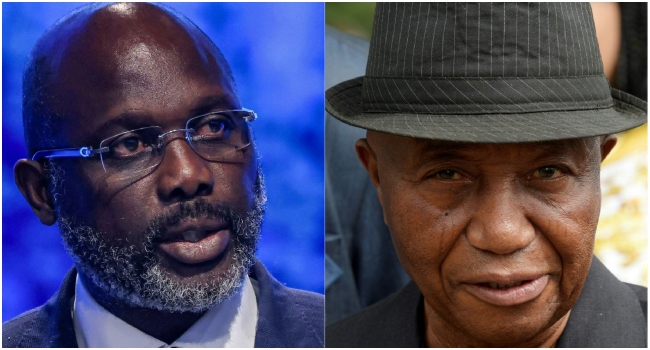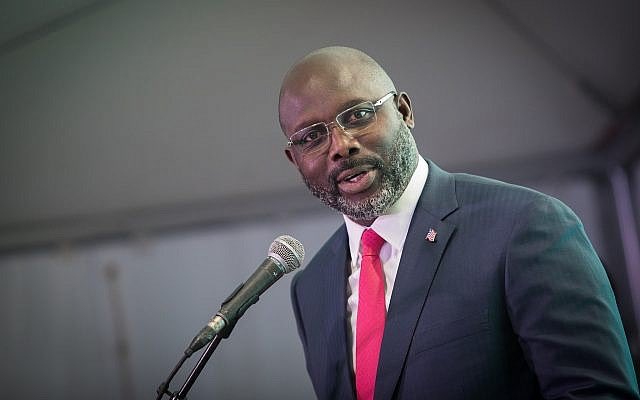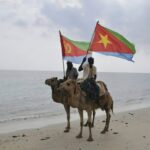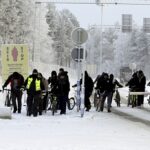Liberians deserve and expect free, peaceful elections. There have been fears of post-election violence, following clashes that left several people dead while the candidates were on the campaign trail. The peaceful conduct of elections and the subsequent acceptance of outcomes will help strengthen the democratic credentials of the country.
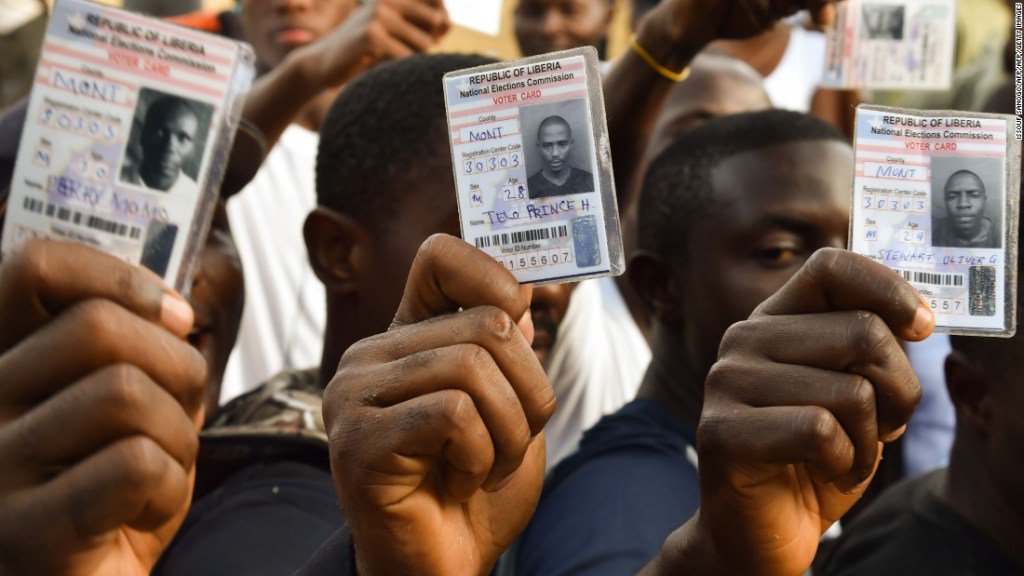
More on this story: risks runs high while no candidate is ready to lose
Former Vice President Joseph Boakai, a 78-year-old former vice president has won the Presidential election in Liberia, narrowly defeating incumbent President George Weah, who has conceded. Boakai held 50.89 percent of the votes, and Mr. Weah 49.11 percent. Boakai, was narrowly defeated by Weah in 2017. This is the first election to have been held since the United Nations ended its peacekeeping mission in Liberia in 2018.
The closeness of the election results reflects how divisive the country is, and a major priority for the new government will be healing and national reconciliation in order to set the stage for consolidated democracy and sustainable development.
While conceding defeat, Weah called on his supporters to follow suit but regroup to begin preparation to retake power in 2029.
This is the first time since the early 1900s that an incumbent president of Liberia has not been re-elected after serving one term. The swearing-in ceremony is scheduled for January.
Voters grew disillusioned over time and the 57-year-old Weah was accused of failing to live up to his election promises to improve conditions in the West African nation. Mr. Weah’s opponents have accused him of poor performance and a lack of leadership to guide the country’s healing process. Under Weah Liberia is ranked amongst the top most corrupt countries on earth. After being sworn into office he failed to immediately appoint officials who would take control and charge in the utilization of state power timely, resulting in a period of lull in the polity and creating doubts in people’s minds to his leadership ability. It was after petulant whispers started becoming loud reproaches that a handful of Advisers, Ministers to Government, and a couple of personal aides were appointed. Throughout the six years, there was a lack of harmony and coordination among the various segments and agencies of the executive organ he headed. There were conflicts and acrimony among members of the government that affected the regime’s general output. In all these, the president abandoned his appointees to thrash out issues and settle differences and disagreements themselves, with minimum or no intervention from him. This was a wrong approach to leadership, as harmony and cooperation are benchmarks for successful government, and the role of the leader in ensuring these conditions is essential. However Weah wasn’t a listening leader. This explains his rebuffing of all genuine and well-meaning calls on him to amend his ways on certain national issues. He even alienated the ideas of his key appointees through his misconceived directive to his Cabinet Ministers to pass through his Chief of Staff (at the time Nathaniel Mcgill) in dealing, communicating, and meeting with him. This was a bureaucratic process that delivered, but mediocrity.
Thus, an appointee became responsible for evaluating and deciding on policy initiatives of other appointees. This was not only an unnecessary bureaucratic bottleneck created but the process also indeed diminished the zeal, confidence, and energy of the appointees concerned, ultimately hindering the general policy outputs of his government.Naturally, this lack of direct evaluation and guidance of the president on the initiatives of his appointees rendered the government slow, weak, and bankrupt in ideas, and in policy formulation and implementation.
The failure in President Weah’s leadership style was also temporization. The president hardly took decisions on virtually any issue. It looked as if the president hated making decisions at all until compelled to do so. These included the formation of his cabinet, acting on corruption allegations against his appointees, resignation of his chief of staff and key officials on US sanction listing, injecting capable hands into government, etc. Not that a long period of procrastination necessarily gives cause to making the right decisions, or decisiveness leads to making bad decisions, but temporization is hardly a virtue in the books of leadership. As the saying goes, the easier it is for a leader to do nothing, the harder it is for him to achieve anything. Weah as a person had serious moral and ethical burdens weighing down his personality, and therefore affected his leadership output. On coming to power, President Weah grassed up those who were pivotal to his victory; those who stood by him and sacrificed everything – their intellect, their wealth, and putting their lives on the line for him at a time when crass opportunists were all running away from him. By this act of betrayal, he purposelessly made enemies out of his friends; those who believed in him persevered through hardships, threats, and persecution, and never wavered against all odds at a time when he was being stigmatized, abused, and dreaded. But when he got to power, those who had maligned him, with whose invectives his opponents campaigned against him; those who ran away from him in his hour of need, swarmed back on him like flies on rotten carcass, unfortunately making him turn his back on those who made it possible for him to gain power in the first place.
Mr. Boakai, served as agriculture minister in the 1980s, and director of the state-owned Liberian Petroleum Refinery in 1992, when the civil war raged. Although he was not implicated in any corruption scandals, as vice president he was accused by his critics of turning a blind eye to corruption in the government. During his campaign, Boakai pledged to rescue Liberia from what he described as mismanagement and corruption under the Weah administration. He highlighted the need for a new direction that prioritizes good governance, economic stability, and social welfare. In contrast, the Weah administration has vigorously defended its record, asserting a commitment to development and emphasizing achievements in community infrastructure and road construction.
“I urge you to follow my example and accept the results of the election. Go home tonight with the knowledge that our ideas and vision for Liberia remain strong. We are a young movement and our time will come again,” Weah said.
He said although the outcome of the election was not what he and his supporters desire, the democratic will of the people of Liberia must be respected.
According to President Weah, the election results show that there’s a deep division in the country and the need to be nationalistic above party politics cannot be overmphasised.He said he called President elect Joseph Nyumah Boakai and congratulated him. Weah continued that CDC has lost the election but Liberia has won and it is time to place country above personal interest.


